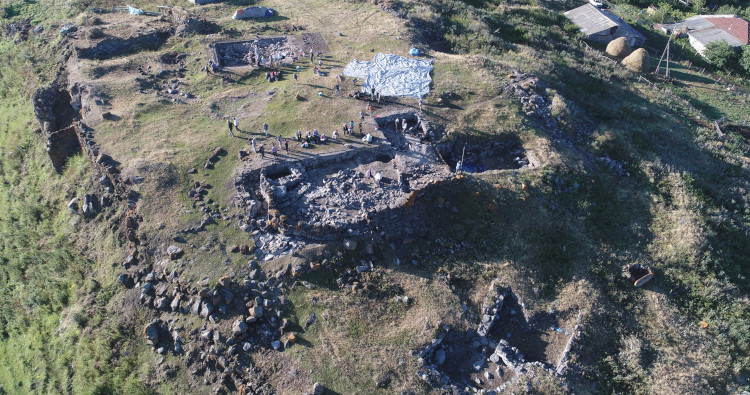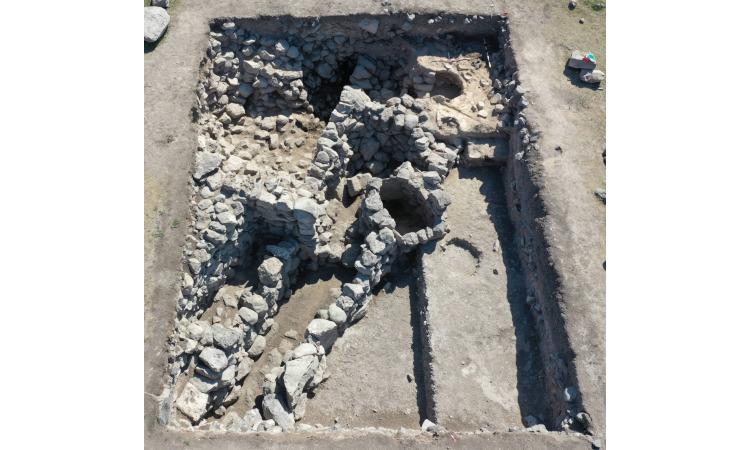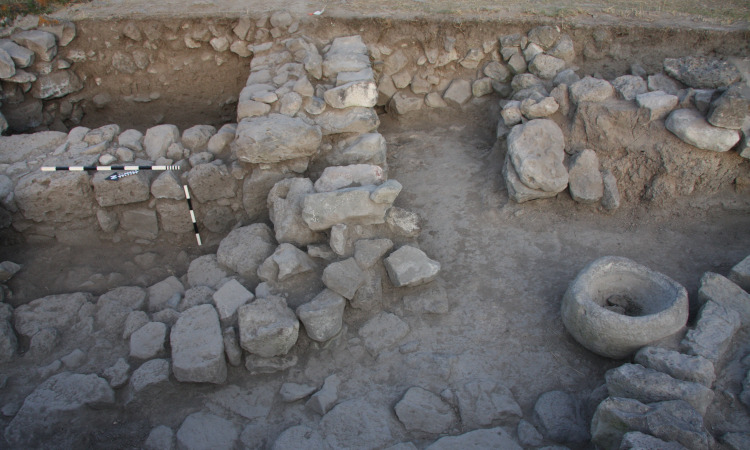"Unique" Bronze Age buildings unearthed at Rabati archaeological site in Georgia's south

The Rabati site is located in Georgia's south and has been subject of an international archaeological expedition. Photo: Georgian National Museum.
A discovery of "powerful buildings" dated back around 50 centuries has been made at the Rabati archaeological site near Georgia's southern border with Turkey, with professionals reporting the structures as a unique type for the Caucasus region.
The finding has been made at the site in the Aspindza Municipality village of Zveli, where an international expedition of the Georgian National Museum has been at work.
Those involved in the digs have reported coming across the remains of buildings, the type of which is "not known across the Caucasus region".

One of the sections of the Rabati site under archaeological work. Photo: Georgian National Museum.
They came with a discovery of burial sites and mounds, stands with animal pictures and other "artefacts of ritual designation" that have "no analogues across the region", a GNM release said.
Layers of later eras have also been excavated and given archaeologists similar findings, with animal figures from clay as well as pottery dated back 43 centuries creating an "entirely new impression" about historical residents of the area.
Historians said the unearthed material showed traces of a "significant settled location" of the early Bronze Age on the territory of Zveli.

Professionals from Georgia and their foreign counterparts have been working to excavate remains as old as 50 centuries ago at the location. Photo: Georgian National Museum.
The Rabati site shows remains of continuous settlements between the 30th century BCE and the Middle Ages. It has been called by local professionals a "significant research object" for archaeologists and historians to study human adaptation to environment and social, economic and cultural changes throughout the millennia.
Archaeological work on the site has for years involved an international effort as part of a "field school" featuring participation by local students joined by their counterparts from the University of Melbourne.
Professionals from France and the United Kingdom are also involved in the expedition, which is supported by the Shota Rustaveli National Science Foundation.
 Tweet
Tweet  Share
Share